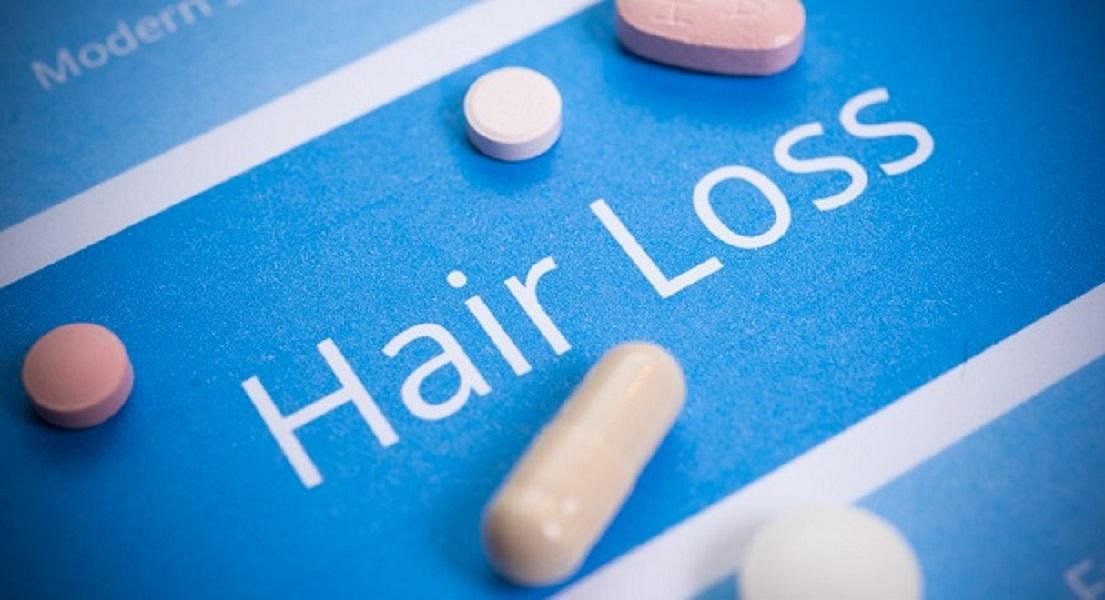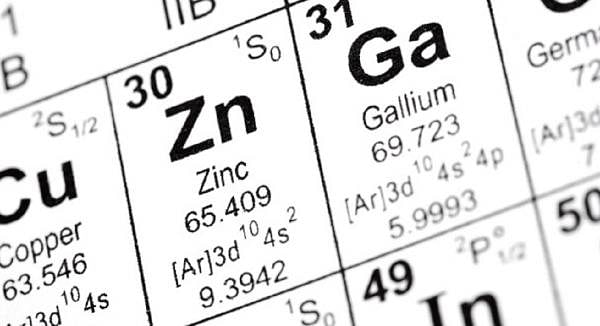Hair Loss - A Support Strategy
Why you can trust Nutri Advanced Every article on our site is researched thoroughly by our team of highly qualified nutritionists. Find out more about our editorial process.
Any type of hair loss can cause major distress, for both women and men alike. There are many ways to encourage better hair health, however the first step is to find out WHY you are losing hair, as finding out the cause will be the key to supporting it appropriately. Hair loss can be caused by a variety of lifestyle-related reasons such as diet, stress and smoking, or even illnesses such as diabetes, certain medications, parasites and hormonal changes e.g. in pregnancy. Even if only temporary, hair loss should be taken seriously as it may be a symptom of a serious underlying health issue.
Read on for some of the most common causes of hair loss and ways you can deal with them naturally...
Anaemia
If you have low iron levels in your blood (haemoglobin) and/or low stored iron (ferritin), chances are your hair will be shedding at an increased rate. Certain people are more prone to anaemia, for example women with heavy periods, vegetarians and vegans, those on certain medications and those with malabsorption issues. Make sure you have your iron levels tested to clarify whether this is the case. Ensure you choose a bioavailable and well tolerated form of iron such as bisglycinate with supportive nutrients such as B vitamins, calcium and phosphorus for superior absorption.
Low Thyroid Function
The thyroid gland is very important as it produces hormones essential for your metabolism, growth and development. Underactive thyroid (hypothyroidism) is a common cause of hair loss or thinning hair. If you suspect an underactive thyroid, first see your GP and if necessary an alternative healthcare practitioner can provide additional support. Conventional blood tests may miss some milder cases of underactive thyroid, yet these will still benefit from support. Many alternative healthcare practitioners offer more comprehensive functional thyroid testing, which will identify even mild cases. Iodine is often deficient in those with hypothyroidism; many benefit from using thyroid glandular concentrates, as well as specific nutrients that support thyroid function such as tyrosine, magnesium supplements, zinc, B vitamins, copper, selenium and vitamin D.
Physical & Emotional Stress
Physical stress may take the form of any trauma, injury, an intense illness, or even a severe flu. Emotional stress, anxiety and tension, especially if chronic or prolonged, may also have profound effects on your body. A very stressful event can “shock” the hair cycle, causing more hair to shed. This may often happen 3-6 months after the trauma occurred. If you recognise that you are going through / have suffered an intense period of stress, it’s important to support your body through this process, nourishing and tonifying it, and this will support hair regrowth. Herbs such as Ginseng, Rhodiola and Cordyceps may help to rebalance the adrenal glands. B complex vitamins are used up rapidly during stress so it is important to replenish these important water-soluble nutrients; magnesium, vitamin C and omega 3 fatty acids EPA & DHA are crucial too.
Male Pattern Baldness – Androgenic Alopecia
Hair loss in men is most often caused by a combination of imbalanced male sex hormones and genetic factors, and usually follows a classic pattern of receding hair and thinning on the crown of the head. Androgenic alopecia may in part be caused by high levels of DHT (5 alpha-Dihydrotestosterone), a more potent form of testosterone. High levels of DHT, locally at the site of hair follicles may increase hair loss and reduce new growth. Providing nutritional support to balance hormones is key, so supplement with specific multi nutrients, zinc, beta-sitosterol and the herb saw palmetto.
Nutrient Deficiencies
It makes sense that if you don’t have the right “ingredients” to make good quality hair, your hair condition and its growth rate will be negatively affected. Essential components of hair include protein (amino acids), minerals, sulphur (MSM) and silica (found in the herb Horsetail). B vitamins, in particular biotin, and Omega 3 fats EPA & DHA are also necessary for optimal hair health.
Optimal nutrition can make a significant difference to your hair health
There can be many different reasons at the root cause of hair loss; finding the cause that is unique to you is the most important step towards improving the health of your hair. Once you have identified the underlying reasons for hair loss, making sure you are optimally nourished with key vitamins, minerals and supportive nutrients can make a significant difference.
This website and its content is copyright of Nutri Advanced ©. All rights reserved. See our terms & conditions for more detail.
Nutri Advanced has a thorough research process and for any references included, each source is scrutinised beforehand. We aim to use the highest value source where possible, referencing peer-reviewed journals and official guidelines in the first instance before alternatives. You can learn more about how we ensure our content is accurate at time of publication on our editorial policy.
Most Popular Articles
-
7 Surprising Ways To Support Your Magnesium
If you are displaying signs of a magnesium deficiency, here are 7 ways to boost your magnesium levels that are easy to incorporate into your daily life. -
5 Best Vitamin C Supplements Picked By Our Experts
Learn more about the different types of vitamin C, the different benefits you get from different types, and what you get for spending more on a good supplement. -
Top 5 Vitamins For Energy And Tiredness Picked By Our Experts
The 5 best and most important vitamins for energy & tiredness including B vitamin food sources & best supplement forms for energy. -
Benefits of Myo-Inositol for Polycystic Ovary Syndrome (PCOS)
In this research review article, we take a closer look at a lesser-known natural compound called myo-inositol that has been found to have significant potential to improve many of the prevalent features of PCOS. -
Top 10 Reasons to Give Your Kids Omega-3
Read the top 10 reasons that kids should have plenty of Omega-3- an essential fatty acid- including for depression, brain function, sleep & reading/maths skills.

















